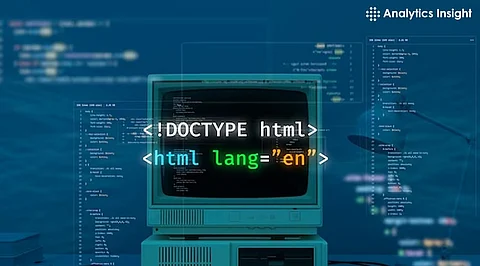

Building a website is a common and essential task for many businesses, organizations, and individuals in the digital age. A website can serve various purposes, such as providing information, selling products, offering services, or showcasing portfolios. However, building a website is not a simple process, as it requires the use of various tools, frameworks, and languages.
In this article, we will introduce you to the top 10 programming languages for building websites in 2024.
JavaScript is the most popular and widely used programming language for web development, as it is the only language that can run natively on web browsers. JavaScript allows you to create dynamic, interactive, and responsive websites, by manipulating the HTML and CSS elements of the web page. JavaScript also supports various libraries and frameworks.
Python is a general-purpose, high-level, and easy-to-learn programming language that has become one of the most preferred languages for web development, especially for data-intensive and machine-learning applications. Python offers a simple and expressive syntax, a large and rich standard library, and a vast and supportive community. Python also supports various web development frameworks.
HTML (HyperText Markup Language) is not a programming language, but a markup language that defines the structure and content of a web page. HTML is the backbone of every website, as it allows you to create and organize the elements of the web page, such as headings, paragraphs, images, links, and forms. HTML is easy to learn and use, and it is compatible with all web browsers and devices
CSS (Cascading Style Sheets) is not a programming language, but a style sheet language that defines the presentation and appearance of a web page. CSS allows you to customize and enhance the look and feel of your website, by applying various styles, colors, fonts, layouts, and animations to the HTML elements of the web page. CSS is easy to learn and use, and it is compatible with all web browsers and devices.
PHP (Hypertext Preprocessor) is a server-side, scripting, and general-purpose programming language that is widely used for web development, especially for dynamic and database-driven websites. PHP allows you to create and execute scripts on the web server, and generate HTML output for the web browser. PHP offers a fast and flexible way of working with data, files, and databases, and it supports various web development frameworks.
Ruby is a general-purpose, high-level, and expressive programming language that is designed to make web development fun and easy. Ruby offers a concise and elegant syntax, a powerful and dynamic object-oriented system, and a large and diverse standard library. Ruby also supports various web development frameworks.
Java is a general-purpose, high-level, and compiled programming language that is widely used for web development, especially for large-scale and enterprise-level applications. Java offers a robust and reliable way of working with data, files, and databases, and it supports various web development frameworks, such as Spring, Hibernate, and Struts, that can simplify and speed up the development process, and provide various features, such as testing, debugging, and security.
C# (pronounced as C sharp) is a general-purpose, high-level, and object-oriented programming language that is widely used for web development, especially for Windows-based and. NET-based applications. C# offers a simple and modern syntax, a powerful and flexible object-oriented system, and a large and rich standard library. C# also supports various web development frameworks, such as ASP.NET, .NET Core, and Blazor, that can simplify and speed up the development process, and provide various features, such as testing, debugging, and security.
SQL (Structured Query Language) is not a programming language, but a query language that is widely used for web development, especially for data manipulation and analysis. SQL allows you to communicate and interact with databases, such as MySQL, PostgreSQL, and Oracle, and perform various operations, such as creating, retrieving, updating, and deleting data.
TypeScript is a superset of JavaScript, which means that it extends and enhances the features and functionality of JavaScript. TypeScript allows you to create more reliable and maintainable websites, by adding optional static typing, classes, interfaces, and modules to JavaScript. TypeScript also supports various web development frameworks.
Join our WhatsApp Channel to get the latest news, exclusives and videos on WhatsApp
_____________
Disclaimer: Analytics Insight does not provide financial advice or guidance. Also note that the cryptocurrencies mentioned/listed on the website could potentially be scams, i.e. designed to induce you to invest financial resources that may be lost forever and not be recoverable once investments are made. You are responsible for conducting your own research (DYOR) before making any investments. Read more here.
